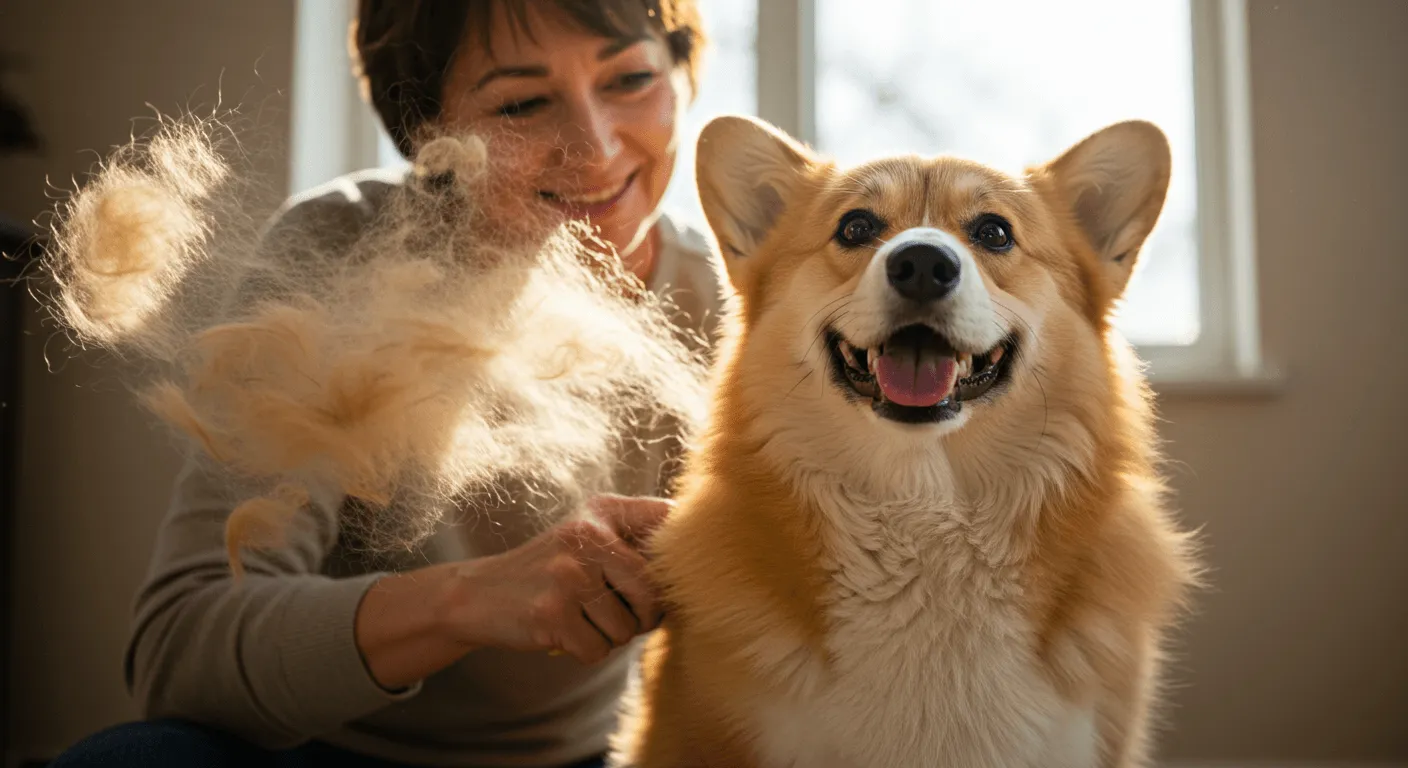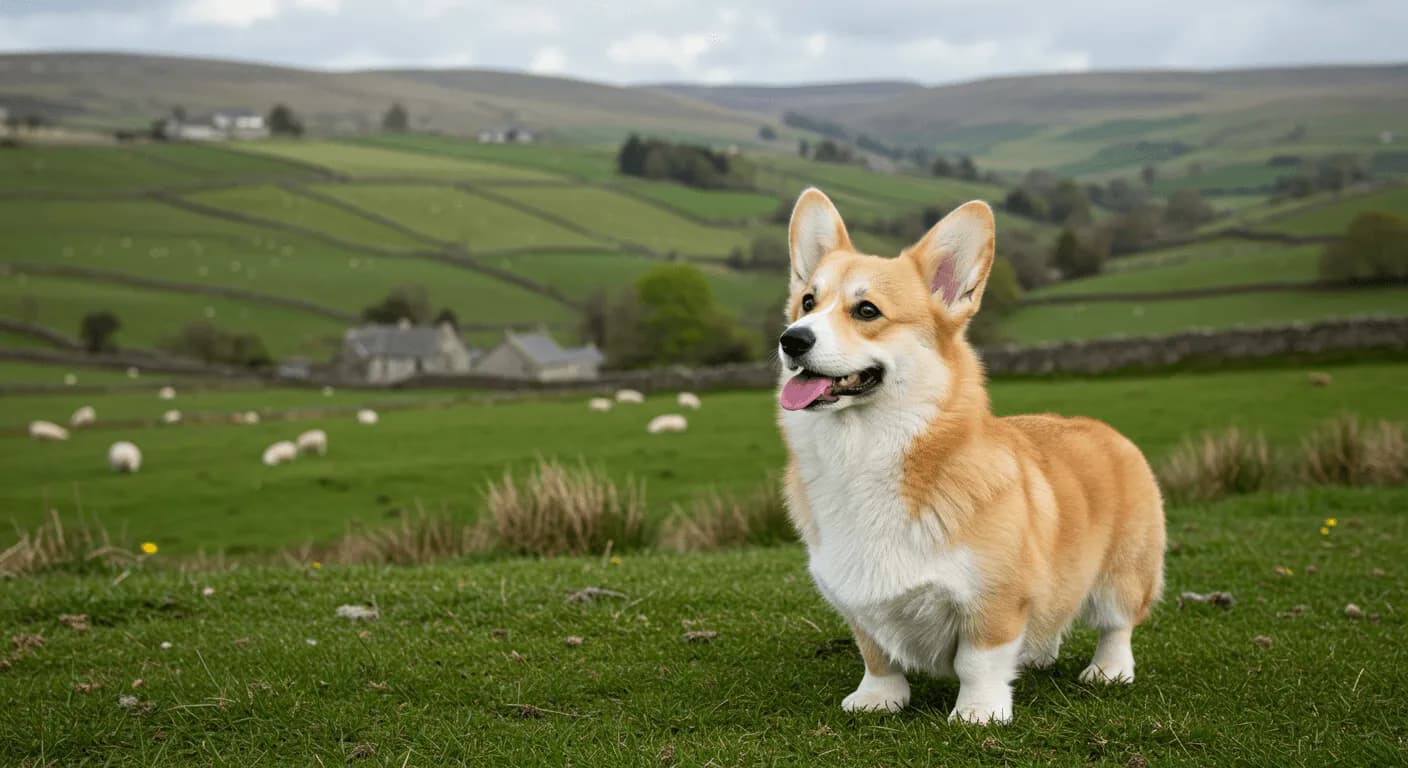Pembroke Welsh Corgis are one of the most recognizable dog breeds out there, with their short legs, perky ears, and big personalities packed into small frames. Originally bred as herding dogs in Wales, this spirited breed has gained popularity worldwide—thanks in part to Queen Elizabeth II's well-known affection for them.
So, you've probably seen their charming expressions and signature wiggles and thought, "Should I get a Pembroke Welsh Corgi?" The answer depends on your lifestyle, personality, and preferences as a dog owner. In this guide, we’ll explore everything you need to know to determine if a Pembroke Welsh Corgi is the right companion for you.
Temperament and Personality
Pembroke Welsh Corgis are known for their bold, intelligent, and affectionate nature. Despite their compact size, they carry a commanding presence and often don’t realize quite how small they are.
Typical Behavioral Traits
Corgis are often described as having a big dog in a small dog body mentality. They are alert, confident, and often exhibit strong herding instincts. You might catch your Corgi trying to herd children, other dogs, or even you by nipping at heels—a throwback to their days herding cattle.
They are also quite vocal and won’t hesitate to tell you if something feels off. This makes them excellent watchdogs, although it may not sit well with neighbors in noise-sensitive environments.
Energy Levels and Social Tendencies
Despite their short legs, Pembroke Welsh Corgis have plenty of energy to burn. They were bred for an active lifestyle and excel at agility, obedience, and herding trials. Daily physical and mental stimulation is crucial to keep this breed happy and well-adjusted.
They are generally sociable and friendly with both people and other animals, especially when properly socialized from a young age. Corgis love being involved in family activities and dislike being left out or ignored.

Pros and Cons for Different People
Thinking about who makes a good match for a Pembroke Welsh Corgi? Here’s how they stack up in various household scenarios:
Families with Children
- Pros: Corgis tend to adore children and love to play.
- Cons: Young children may inadvertently trigger herding behavior, like nipping.
- Best suited for families who understand how to supervise dog-child interactions.
Single Individuals
- Pros: Corgis are loyal companions and love bonding with a primary owner.
- Easy to train and travel with if you're a solo adventurer.
- Cons: May develop separation anxiety if left alone for extended hours every day.
Elderly Owners
- Pros: Corgis are small and manageable in size.
- Offer affectionate companionship.
- Cons: Require regular exercise that may be demanding for less mobile individuals.
Active Lifestyles vs. Sedentary Lifestyles
- Corgis thrive in active households where they can go on walks, runs, or play fetch in the yard.
- They are not ideal for highly sedentary lifestyles, as lack of stimulation can lead to behavioral issues like barking and destructiveness.
Suitability Factors
When considering a Pembroke Welsh Corgi, these compatibility questions are essential:
Are Pembroke Welsh Corgis Good with Kids?
Yes, Corgis are generally good with children. They are lively, playful, and durable enough to handle a boisterous playmate. Due to their herding background, they may occasionally try to herd children by nipping at their heels, so supervision and early training are key.
Are Pembroke Welsh Corgis Good with Other Dogs?
Corgis can usually get along well with other dogs, especially if raised with them. However, they tend to be dominant and may be a little bossy in multi-dog households. Early socialization is crucial to encourage positive canine interactions.
Are Pembroke Welsh Corgis Good with Cats?
Many Pembroke Welsh Corgis coexist peacefully with cats, particularly if they have known cats since puppyhood. However, their herding instincts might kick in, especially with sprinting cats, leading to some chasing behavior.
Are Pembroke Welsh Corgis Good Guard Dogs?
Corgis are not guard dogs in the traditional, protective sense, but they are excellent watchdogs. Always alert and suspicious of strangers, they will bark to alert their owners of unfamiliar happenings.
Are Pembroke Welsh Corgis Good for Apartments?
Yes and no. Their small size makes them suitable for apartment living, but only if their exercise needs are met. They are also prone to barking, which could be an issue in shared living spaces.
Do Pembroke Welsh Corgis Need a Yard?
A yard is ideal but not mandatory. If you live in a home with a secure outdoor space, your Corgi will love it. If not, daily walks and active play sessions indoors can help compensate.
Is a Pembroke Welsh Corgi Good for First-Time Owners?
Corgis can make good pets for dedicated first-time owners. They are intelligent, trainable, and eager to please—but also headstrong and spirited. If you're committed to consistent training and exercise, you’ll find them highly rewarding companions.
Care Requirements
Exercise Needs
Don’t let their stubby legs fool you—Pembroke Welsh Corgis are energetic and require at least 1 to 1.5 hours of activity daily. This can include walks, playtime, and mentally engaging activities like puzzle toys or training games.
Grooming Requirements
Corgis have a double coat that sheds—often profusely during seasonal changes. Brushing 2-3 times per week (daily during shedding season) helps manage their fur.
- Moderate drooling.
- High shedding levels.
- Occasional baths and nail trims are sufficient to maintain hygiene.

Training Considerations
- Quick learners with a strong desire to work.
- Respond well to positive reinforcement.
- Can be headstrong, so early training and socialization are vital.
- Barking is common—often excessive—so teaching the “quiet” command is helpful.
Can Pembroke Welsh Corgis Live Outside?
No. Pembroke Welsh Corgis are companion dogs. Although hardy, they crave human interaction and do not do well left outdoors or isolated for long periods.
Can Pembroke Welsh Corgis Be Left Alone?
If appropriately trained, adult Corgis can be left alone for short periods. However, too much alone time can result in:
- Separation anxiety.
- Destructive behavior.
- Excessive barking.
Providing toys, crate training, and using doggy daycares can help manage time apart.
Are Pembroke Welsh Corgis High Maintenance?
In some ways, yes. While their size might suggest a low-maintenance pet, their grooming needs, exercise requirements, and need for mental stimulation mean they may not be ideal for someone looking for a couch potato pup.
Here’s a quick checklist of the main ongoing care requirements:
- Daily exercise (physical + mental)
- Regular grooming and brushing
- Consistent training and socialization
- Routine vet visits and health monitoring
Health and Lifespan
Common Health Issues
Like many purebred dogs, Pembroke Welsh Corgis are prone to certain health issues, including:
- Hip dysplasia
- Degenerative myelopathy
- Intervertebral disc disease (IVDD)
- Progressive retinal atrophy (PRA)
- Obesity
Because of their long backs and short legs, weight management is especially important to avoid spinal problems.
Pembroke Welsh Corgi Life Expectancy
The average life expectancy ranges from 12 to 15 years. With proper care, it's not uncommon for these little dynamos to live a long, active life well into their teens.
Are Pembroke Welsh Corgis Hypoallergenic?
No. Pembroke Welsh Corgis are not hypoallergenic. They are heavy shedders and have dander that can be problematic for people with allergies. Regular grooming and household cleaning can help reduce allergens.

Cost and Legal Considerations
How Much Does a Pembroke Welsh Corgi Cost?
Corgis are in high demand, and their cost reflects this:
- From breeders: $1,000 – $3,000
- From shelters or rescues: $150 – $500
- First-year care costs: Vetting, supplies, food, and training can add up to $1,500+
- Ongoing yearly cost: Approximately $1,000–$1,500
Prices may vary based on lineage, location, and breeder reputation.
Pembroke Welsh Corgi Legal Restrictions
Generally, Pembroke Welsh Corgis are not banned or heavily restricted in any country or U.S. state. However, some breed-specific housing restrictions or insurance caveats may apply. Always check local regulations before bringing one home.## Conclusion
The Pembroke Welsh Corgi is a delightful and spirited breed, well-known for its intelligence, loyalty, and signature charm. Whether you're drawn to their royal pedigree or their energetic personality, it's clear that this breed has a lot to offer the right owner.
However, Pembroke Welsh Corgis are not a one-size-fits-all dog. They require consistent training, daily exercise, and ongoing mental stimulation. Their herding instincts and high energy can be both amusing and demanding, especially for those who are not prepared for the responsibility.
Corgis are best suited for individuals or families who lead active lifestyles and can provide the affection and engagement they crave. In return, you’ll receive an intelligent, affectionate, and often amusing companion who will stick by your side and fill your days with tail wags and corgi grins.
If you're willing to invest the time and love this breed needs, the Pembroke Welsh Corgi just might be the perfect addition to your life.




